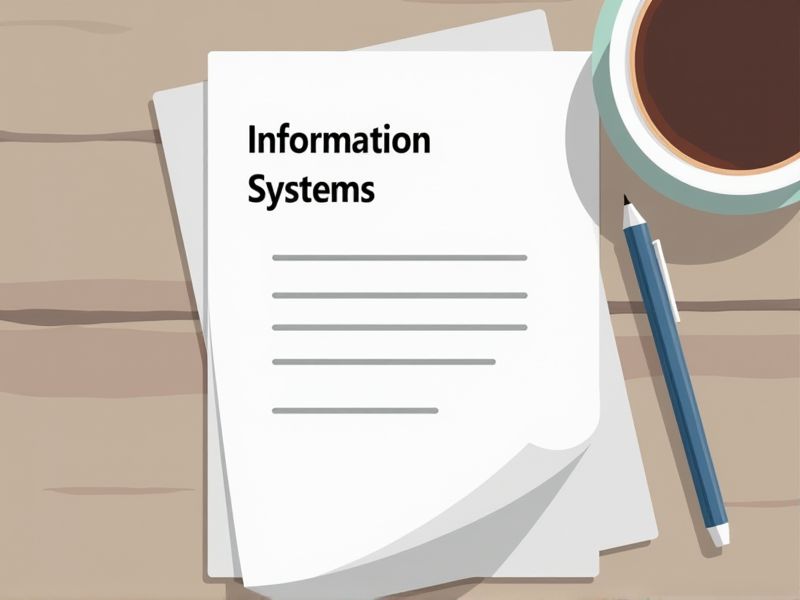
Certifications for Information Systems Auditors are crucial as they establish a standard of excellence and expertise, essential in navigating the complex landscape of information systems. Earning specific certifications demonstrates proficiency in assessing and managing cybersecurity risks, which is critical for protecting organizational data. As regulatory requirements evolve, these credentials ensure auditors remain updated and compliant with the latest industry best practices. Consider these key certifications essential for an Information Systems Auditor.
Certified Information Systems Auditor (CISA)
Possessing a Certified Information Systems Auditor (CISA) designation enhances credibility, as employers recognize the certification as a benchmark for professional excellence. The CISA certification requires candidates to demonstrate and maintain expertise in information systems audit, control, and security, directly aligning skills with industry standards. The certification also provides a structured learning process, ensuring auditors are equipped with up-to-date knowledge of current technologies and methodologies. Organizations often mandate CISA certification for hiring or promoting IT auditors, reflecting its value in validating the auditor's capability to assess and safeguard information systems effectively.
Certified Information Security Manager (CISM)
A Certified Information Security Manager (CISM) enhances an Information Systems Auditor's ability to align security practices with organizational goals, leading to improved strategic risk management. CISM equips auditors with the skills to identify critical security issues, ensuring compliance with industry standards and reducing potential vulnerabilities. By possessing CISM, auditors demonstrate a deeper understanding of information security governance, which strengthens stakeholder confidence. CISM also fosters a proactive security culture, allowing auditors to better prepare organizations for emerging threats.
Certified Information Systems Security Professional (CISSP)
CISSP certification ensures an Information Systems Auditor possesses comprehensive knowledge of security practices, enhancing their ability to scrutinize systems effectively. By validating their expertise in multiple security domains, holders of CISSP can more accurately identify vulnerabilities and recommend robust security measures. This certification demands adherence to a rigorous code of ethics, instilling trust in their capacity to handle sensitive information responsibly. Organizations increasingly require CISSP-certified professionals to comply with legal and regulatory standards, making it crucial for auditors in the field.
Certified in Risk and Information Systems Control (CRISC)
Obtaining a CRISC certification indicates a professional's expertise in identifying and managing IT and business risks, which is crucial for an Information Systems Auditor who must assess and control potential threats. The certification helps auditors ensure an organization's compliance with relevant standards and regulations, reducing potential liabilities. CRISC equips auditors with the skills to effectively communicate risk management strategies to stakeholders, facilitating better decision-making. With increasing cybersecurity threats, having a CRISC certification assures stakeholders of an auditor's ability to safeguard information assets and ensure operational continuity.
Certified Internal Auditor (CIA)
The need for a Certified Internal Auditor (CIA) in Information Systems Auditing stems from the comprehensive understanding of internal control principles that the CIA designation imparts. This expertise facilitates the identification and assessment of risks within information systems. CIAs possess the skills to evaluate the effectiveness of information systems controls and governance. Organizations benefit as this ensures compliance, enhances security measures, and aids in resource optimization.
Certified Fraud Examiner (CFE)
Information Systems Auditors often encounter complex financial data, and a Certified Fraud Examiner (CFE) can identify potential irregularities that may indicate fraudulent activities. The skill set of a CFE complements the technical audit skills by focusing on fraud prevention and detection. Presence of a CFE enhances the credibility of audit results as they provide a deeper understanding of financial deceit patterns. In organizations facing stringent regulatory requirements, CFEs ensure compliance and mitigate risks associated with financial fraud.
CompTIA Security+
CompTIA Security+ provides a foundational understanding of security concepts, which is crucial for Information Systems Auditors who need to evaluate the security measures of systems. This certification ensures the auditor is well-versed in key areas like risk management and threat analysis, essential for identifying vulnerabilities. Having this knowledge allows auditors to recommend effective security controls and solutions to mitigate risks. Organizations often prefer auditors with CompTIA Security+ certification, as it enhances their credibility and ensures they adhere to industry-recognized security standards.
Certified Ethical Hacker (CEH)
A Certified Ethical Hacker (CEH) provides specialized skills in identifying vulnerabilities, which is crucial for an Information Systems Auditor in assessing security measures. With CEH training, auditors can better understand potential attack vectors, enhancing their capability to evaluate system defenses. By integrating ethical hacking techniques, auditors can ensure comprehensive audits that consider both compliance and security effectiveness. The CEH credential establishes credibility, signaling that the auditor possesses both technical and ethical hacking expertise essential for robust information system protection.
ITIL Foundation Certification
The ITIL Foundation Certification equips an Information Systems Auditor with a standardized understanding of IT service management frameworks, enhancing their ability to assess IT service quality and alignment with business objectives. It provides a common language and best practices, which aids in auditing processes by ensuring consistent evaluation criteria. Familiarity with ITIL methodologies allows auditors to identify inefficiencies and recommend strategic improvements within IT departments. This certification also bolsters an auditor's credibility and expertise in IT governance, which is crucial for building trust with stakeholders.
Certified Cloud Security Professional (CCSP)
The rise in cloud adoption has introduced complex security challenges that require specialized skills; a CCSP can address these issues effectively. Information Systems Auditors with CCSP certification enhance their capability to assess security controls in cloud environments, ensuring robust data protection. This certification aids in understanding compliance requirements specific to cloud services, vital for accurate auditing. Moreover, possessing a CCSP shows a commitment to staying updated with evolving cloud technologies, beneficial for comprehensive audit practices.
Summary
When you achieve certifications as an Information Systems Auditor, your career prospects can significantly improve. Employers often seek certified professionals, which can lead to more job opportunities and potential salary increases. Enhanced skills and knowledge from certifications can increase your effectiveness in identifying and mitigating risks. With these credentials, you gain credibility and recognition in the field, elevating your professional standing.
